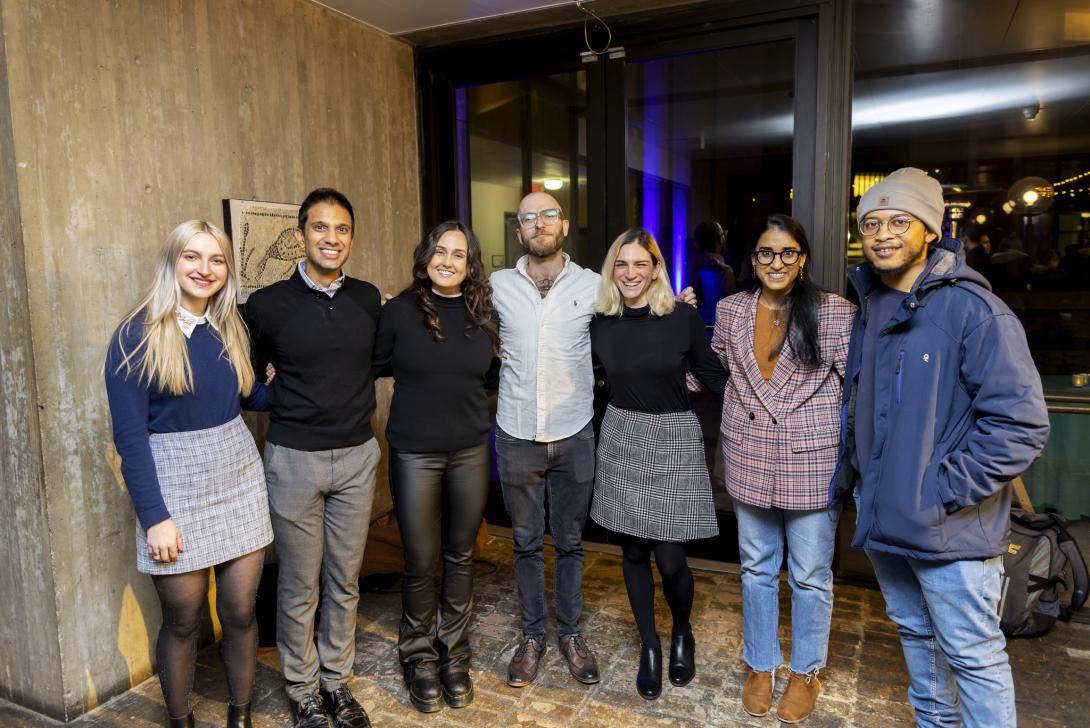Welcome to the Human-Algorithm Collaboration Lab (HACLab)!

- Log in to post comments
Artificial intelligence and machine learning are trendy buzzwords in healthcare. There’s reason for that: AI and ML technologies, when analyzed “in silico”, seem revolutionary. Some artificial intelligence tools may diagnose cancers better than most radiologists. Others may predict the development of cardiovascular disease years before symptoms or lab abnormalities arise. The potential is huge because the scale of healthcare data is getting bigger by the second (specifically – 80,000 gigabytes per second).
So then why has AI not made a dent in routine health care or policy?
The HACLab’s hypothesis is that advanced algorithms could have much more impact by leveraging an extremely powerful data source: human intuition. Clinicians and patients have huge potential to amplify the impact of AI’s better diagnoses and predictions. Sometimes clinicians and patients can provide novel data to an AI algorithm that is otherwise based on routine health data. Other times humans can inform the way that an AI is deployed in order to maximally improve clinical decision-making or patient care.
We have a few examples of this. For example, we developed an AI tool from hundreds of electronic health record variables to predict the risk of adverse outcomes for individual patients with cancer. We used this algorithm as part of a behavioral “nudge” to prompt clinicians to have earlier conversations with their patients. Pairing machine learning with behavioral economics had a big impact on patients. We quadrupled the number of documented conversations – and sustained that rate for months after the intervention. We lowered rates of wasteful chemotherapy by over 25%. And we saved over $13,000 in unnecessary spend near the end of life.
We achieved this impact because we conducted rigorous interviews to design and improve the algorithm in a way that it would fit into clinicians’ workflows. And then we used proven behavioral strategies to maximize the change that an AI “flag” would be acted upon. We’re now using the same playbook in other studies to increase palliative care utilization, prevent side effects from cancer therapy, increase colon cancer screening, and reduce opioid overdoses.
The bottom line: AI without a human touch will just result in numbers and alerts that get ignored by clinicians, patients, and health policymakers. Clinicians, patients, and AI can collaborate to achieve long-lasting improvement in outcomes.
You’ll notice, then, that our team consists of talented data scientists and programmers, but also clinicians, mixed-methods researchers, and clinical research coordinators. We seek input from human factors experts, implementation scientists, and interface designers. This multidisciplinary team is what puts the “collaboration” in “human-algorithm collaboration”.
Our reach extends beyond designing algorithms and running trials. Being seated in the Penn Division of Health Policy, in addition to the Abramson Cancer Center and Penn Medicine, offers the opportunity to provide thought leadership on broader aspects of AI. How should the FDA regulate clinical AI? Who is liable when AI causes injury? How do we pay for AI? And, perhaps most importantly, how do we detect and mitigate bias in AI (we have a whole line of research geared towards this).
How do we achieve impact? By collaborating both within and outside of academia. We partner with clinics and health systems, government bodies, health insurers, pharma, and other organizations. These partnerships range from algorithm development to planning for algorithm rollouts to rigorously testing the impact of algorithms.
While the HACLab may not have the resources of Google and Amazon, we believe our research can have meaningful, immediate impact on patients and caregivers by welcoming collaborations with government and industry partners who want to use algorithms responsibly.
We also read and publish voraciously in many venues. Academic journals. Newspaper op-eds. Blogs. White papers. We want to share our central message – that, in healthcare, AI needs humans and humans need AI – to as broad an audience as possible. We also will maintain an active blog that shares important findings and projects that come out of the HACLab.
Importantly, we are not just an “AI Lab”. Our research touches areas of cancer care delivery, responsible use of novel therapeutics, payment reform, and disparities in cancer care – among others. This broad focus gives us a broad perspective on how algorithms can transform health care.
So that’s a brief intro to the HACLab! We are excited to share with you our progress moving forward. We would also love to learn from you! Please reach out with ideas, critiques, or collaborations.
Sincerely,
Ravi Parikh
Director, HACLab
